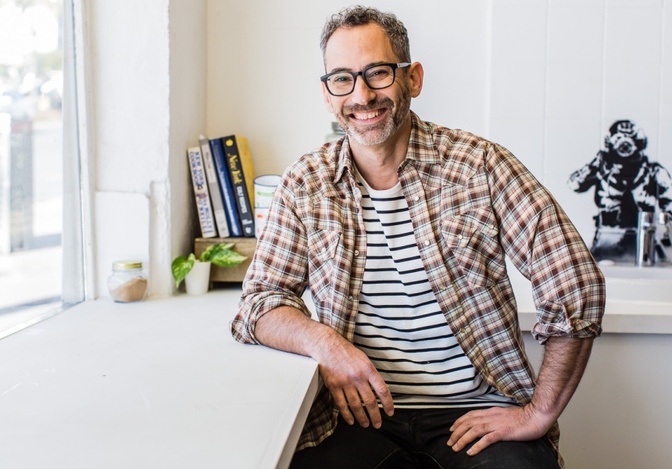Australia's culinary community benefited under the old system: now many hospitality professionals fear for their industry. We speak with two of them.

Michael Shafran lived in Australia for six years on the 457 temporary skilled work visa, a program abolished by the Turnbull government yesterday. Shafran now owns Brooklyn Boy Bagels in Sydney.
“I came over on skilled labour and bought in a different cultural sensitivity and skill set that wouldn’t be here otherwise,” he says. “I opened a bakery and brought that New York culture. You’re not going to get that from someone not from New York, you wouldn’t get that without the 457 bringing people over.”
Right now, he has a 457 application pending for a new head baker that he hopes will not be affected. Bakers have not been included on the government’s list of potential jobs to be removed from the program, though there is no confirmation yet on which occupations will and will not be affected.
While existing 457 visa holders will not be affected by the ban, applicants that had lodged their application on or before April 18, 2017 and whose skills are no longer eligible will have to reapply under the new scheme. Both they and their employers may be eligible for a refund of application fees.
“It's been a bit of a struggle to find experienced bakers who can bake artisan bread … If you ask any bakery in this town you’ll find that qualified bakers are in short supply,” says Shafran.
“That's why a lot of people in baking and hospitality are getting staff from overseas because they’re having trouble getting people that want to work those hours. It's a hard job, it doesn’t pay as well as other careers. We’re not looking at overseas staff because we’re trying to find cheap labour or trying to work the system, we’re just trying to find good staff who will stick around for a while.”
Sven Almenning, owner and director of the Speakeasy Group (that operates four bars across Melbourne and Sydney including Boilermaker House, The Roosevelt, and Eau de Vie in both cities), fears the changes could have devastating effects on the hospitality industry but is skeptical of the motivations for the change.
“In this industry in particular, there’s not exactly an unemployment issue – there’s an enormous skills shortage. So the last thing we need is more laws and regulations that’s going to hamper fulfilling the jobs that are available,” he says.
“Without getting too political, to say ‘hey we’re going to abolish the 457 visa’ … it just seems like a populist political move for an election. But what you’re really doing is messing with the safety and security of businesses – you’re messing with our financial infrastructure. That’s what it feels like at this stage.
“‘You’ll still be able to get skilled workers but you’re not going to be able to get them on the 457. It just seems like a headline grab at the moment, and I’m kind of hoping it is.”
To replace the 457 scheme, the government plans to implement the Temporary Skill Shortage (TSS) visa program. The program will include two new visas. A two-year visa (which can be renewed for a further two years) and a four-year visa, which will be targeted at higher-level skills. Both visas will require at least two years of relevant work experience, which was not necessary for a 457 visa. The four-year visa also requires a higher level of English proficiency.
As it stands, the 457 is a four-year visa that allows foreign workers to access jobs in more than 650 occupations. This list of eligible occupations will be condensed to 435 under the new scheme, with 216 occupations removed and access to 59 other occupations restricted.
The ABC obtained an internal newsletter from the Department of Immigration and Border Protection that “highlighted ‘possible further adjustments to eligible occupation lists’ among a number of changes that could come into affect in July.”
The newsletter “outlined caveats for a number of roles” in the hospitality industry that are still on the approved jobs list, including chefs, cooks and cafe managers. It indicated those same roles at “fast food outlets, coffee shops or ‘drinking establishments that offer only a limited food service’” will not qualify for the visa scheme.
Positions across the media, arts, entertainment and fashion industries will also be affected by the ban.
Broadsheet Media reached out to Minister for Immigration Peter Dutton for comment but did not receive a response before publication time.
The new scheme will finish rolling out by March 2018.



